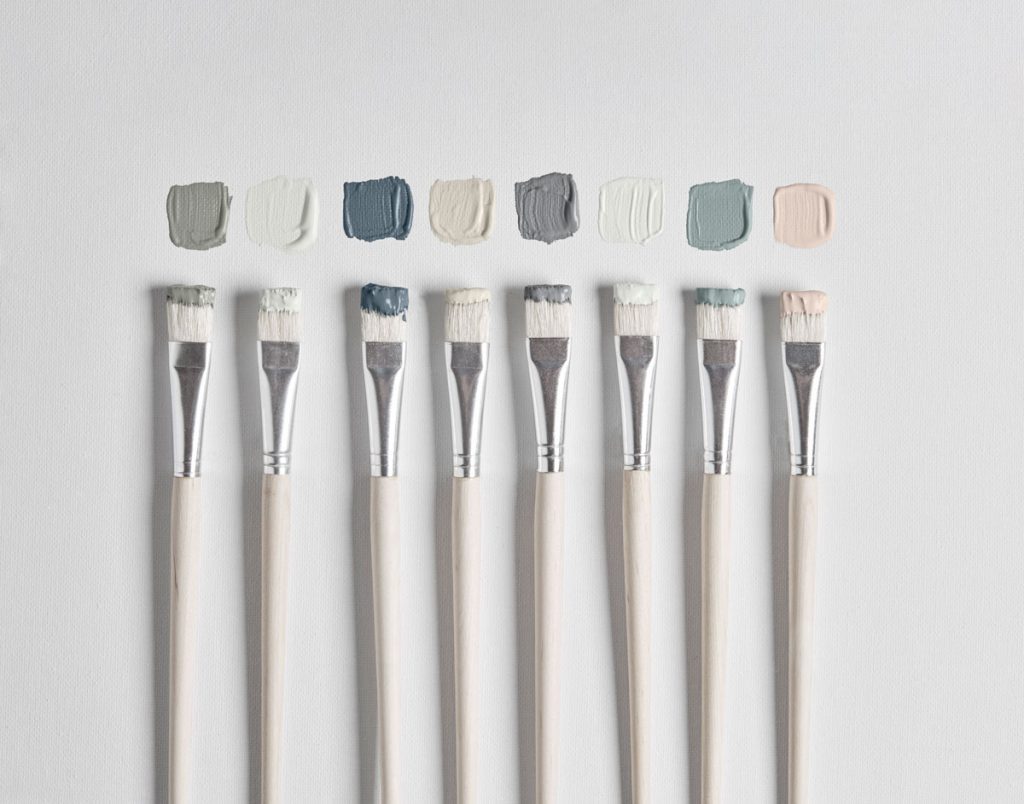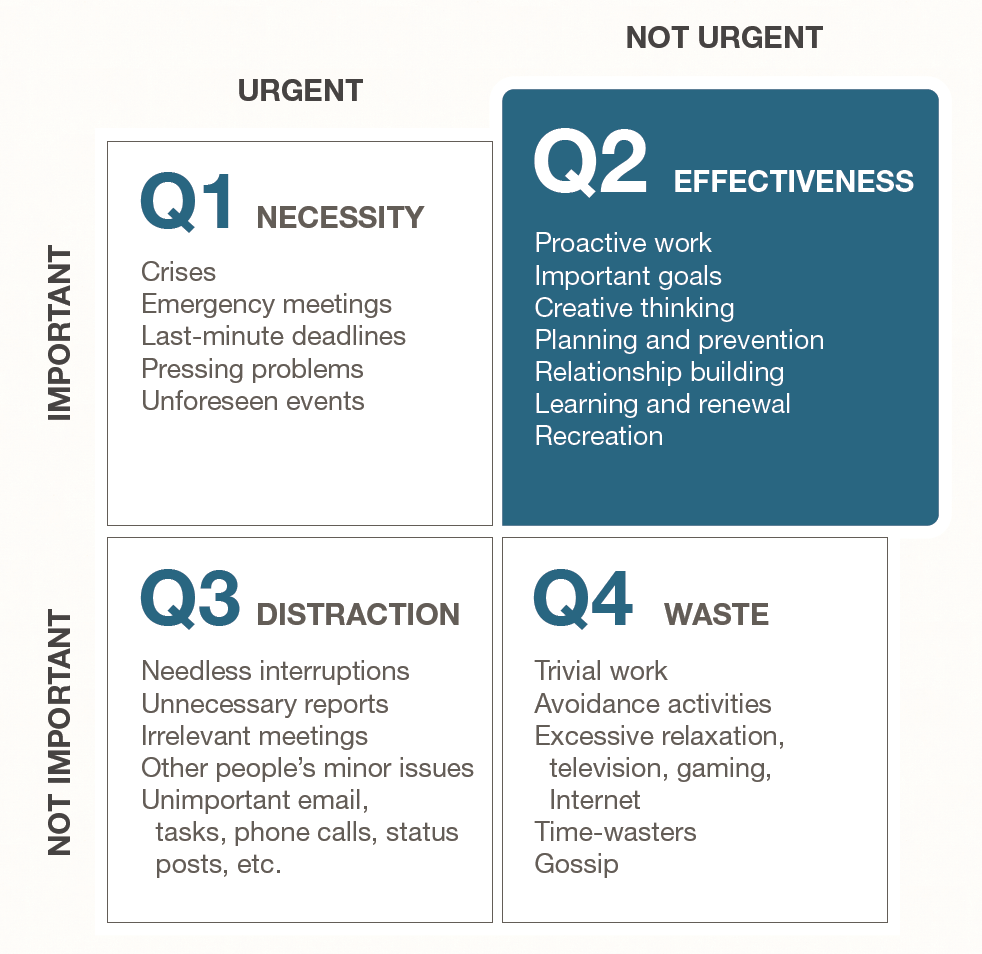
From left to right: Souris, Buckram, Hainsworth, Lansdown, Cobble, Wick White, Swedish blue, Smock.
Let’s talk about habits; the ones that serve us well and the ones that don’t. It’s a bit like choosing your paint colours, you are neither right or wrong. I’ll be sharing my top 7 habits with you, we’re going in deep today!
Over the years habits are made. We shower, get dressed, have breakfast, brush our teeth – these are all habits that we have created and stuck too since being very small. They set us up for the day ahead and can easily be replicated without much thought.
Small habits can creep into our lives without us even realising until we sit up and take notice.
(Tell me I’m not on my own when I might have got into the habit a few years ago of letting the paintbrushes dry without cleaning them? May I add that I have now stopped this habit, honestly!)
Or going online to research something then going completely off topic and finding myself 360 degrees somewhere else? The Scrolling Habit its real! On that note:
![]() Grab a cuppa, a cosy seat and a notebook! (How stunning is this Bear Love Seat from Loaf by the way…?)
Grab a cuppa, a cosy seat and a notebook! (How stunning is this Bear Love Seat from Loaf by the way…?)
Right now you are comfy, take a moment and jot down ALL the habits that you do that work well for you AND those habits that don’t serve you so well.
Take your time…
Be really honest with yourself – no-one has to see this list (you can share with me if you wish, for accountability, but it won’t go anywhere!)

Now you’ve bought attention to those habits – how do you feel? (Keep this list with you, you’ll need it for a bit later on in the blog.)
These small habits, the ones that serve us and the ones that don’t serve us so well, all add up.

Consider this: maybe you’re saving for a new house..
Saving up pennies adds up. Yet, would you give up if you had to save up £10k for a deposit on a house and knew you possibly would never get there?
How do you know you will reach that goal?
Who told you that you will?
Are you really sure?
Have you started to save pennies?
What’s your plan?
The larger goal can be overwhelming, so sometimes we can sit back and do nothing, procrastinate. Telling ourselves the same old story each month, each year, not going anywhere, still stuck, when it’s YOU that holds the key to your sucess..
It’s all up to you.
“Paradigms are powerful because they create the lens through which we see the world…
If you want small changes in your life, work on your attitude.
But if you want big and primary changes, work on your paradigm.”
Dr. Stephen R. Covey
7 Habits of (Effective) Daily Living
I am a huge fan of Franklin and Stephen Covey, having studied a course with the Foundation years ago. The many lessons they taught have stayed with me, from time management, paradigm shifts and especially the 7 Habits of Effective Daily Living. For this reason, I’m sharing Stephen Covey’s Habits in this week’s blog, in the hope that they really help you too. Each habit links to the next, hold onto your hats – they are good!
![]() Habit 1: Be Proactive® Focus and act on what they can control and influence, instead of what you can’t.
Habit 1: Be Proactive® Focus and act on what they can control and influence, instead of what you can’t.
Be Proactive is about taking responsibility for your life. Proactive people recognise that they are “response-able.” They don’t blame genetics, circumstances, conditions or conditioning for their behaviour. They know they choose how they behave. Reactive people, on the other hand, are often affected by their physical environment. They find external sources to blame.

If the weather is good, they feel good. If it isn’t, it affects their attitude and performance, and they blame the weather.
Proactive people focus their efforts on their Circle of Influence. They work on the things they can do something about: health, children or problems at work.
Reactive people focus their efforts in the Circle of Concern – things over which they have little or no control: the national debt, terrorism or the weather. Gaining an awareness of the areas in which we expend our energies is a giant step in becoming proactive.
![]() Habit 2: Begin With the End in Mind® Define clear measures of success and a plan to achieve them.
Habit 2: Begin With the End in Mind® Define clear measures of success and a plan to achieve them.
Habit 2 is based on imagination – the ability to envision in your mind what you cannot at present see with your eyes. It is based on the principle that all things are created twice. There is a mental (first) creation, and a physical (second) creation.
If you don’t make a conscious effort to visualise who you are and what you want in life, then you empower other people and circumstances to shape you and your life by default. It’s about connecting again with your own uniqueness and then defining the personal, moral and ethical guidelines within which you can most happily express and fulfill yourself.

Stephen Covey suggests one of the best ways to incorporate Habit 2 into your life is to develop a Personal Mission Statement. (Remember those from your Uni days?) It focuses on what you want to be and do, your plan for success. It reaffirms who you are, puts your goals in focus, and moves your ideas into the real world.
Your mission statement makes you the leader of your own life. You create your own destiny and secure the future you envision.
Can you tell why I love Dr Covey’s work? I’m all about the Missions, focus and as you know, I love my Power of an Hours to stop the procrastination!
“People are working harder than ever, but because they lack clarity and vision, they aren’t getting very far. They, in essence, are pushing a rope with all of their might.”
Dr. Stephen R. Covey
![]() Habit 3: Put First Things First® Prioritise and achieve their most important goals, instead of constantly reacting to urgencies.
Habit 3: Put First Things First® Prioritise and achieve their most important goals, instead of constantly reacting to urgencies.
Habit 1 says, “You’re in charge. You’re the creator.” Being proactive is about choice.
Habit 2 is the first, or mental, creation. Beginning with the End in Mind is about vision.
Habit 3 is the second creation, the physical creation. This habit is where Habits 1 and 2 come together.

Habit 3 is about life management as well–your purpose, values, roles, and priorities.
What are “first things?”
First things are those things you, personally, find of most worth.
If you put first things first, you are organizing and managing time and events according to the personal priorities you established in Habit 2.
“Putting first things first means organizing and executing around your most important priorities. It is living and being driven by the principles you value most, not by the agendas and forces surrounding you.”
Dr. Stephen R. Covey
![]() Habit 4: Think Win-Win® Collaborate more effectively by building high-trust relationships.
Habit 4: Think Win-Win® Collaborate more effectively by building high-trust relationships.
“Think Win-Win isn’t about being nice, nor is it a quick-fix technique. It is a character-based code for human interaction and collaboration. Most of us learn to base our self-worth on comparisons and competition. There is only so much pie to go around, and if you get a big piece, there is less for me; it’s not fair and I’m going to make sure you don’t get anymore.” Stephen Covey.
Win-win sees life as a cooperative arena, not a competitive one. Win-win is a frame of mind and heart that constantly seeks mutual benefit in all human interactions. (I love win, win situation!)

Win-win means agreements or solutions are mutually beneficial and satisfying. We both get to eat the pie, and it tastes pretty darn good!
A person or organisation that approaches conflicts with a win-win attitude possesses three vital character traits:
Integrity: sticking with your true feelings, values, and commitments
Maturity: expressing your ideas and feelings with courage and consideration for the ideas and feelings of others
Abundance Mentality: believing there is plenty for everyone.
To go for win-win, you not only have to be empathic, but you also have to be confident. You not only have to be considerate and sensitive, you also have to be brave. To do that–to achieve that balance between courage and consideration – is the essence of real maturity and is fundamental to win-win.
![]() Habit 5: Seek First to Understand, Then to Be Understood® Influence others by developing a deep understanding of their needs and perspectives.
Habit 5: Seek First to Understand, Then to Be Understood® Influence others by developing a deep understanding of their needs and perspectives.
Communication is the most important skill in life. You spend years learning how to read and write and years learning how to speak. But what about listening?
Most people, seek first to be understood; you want to get your point across. In doing so, you may ignore the other person completely, pretend that you’re listening, selectively hear only certain parts of the conversation or attentively focus on only the words being said, but miss the meaning entirely.

So why does this happen? Most people, according to Covey, listen with the intent to reply, not to understand.
You listen to yourself as you prepare in your mind what you are going to say, the questions you are going to ask, etc. You filter everything you hear through your life experiences, your frame of reference.
You check what you hear against your autobiography and see how it measures up. And consequently, you decide prematurely what the other person means before he/she finishes communicating.
You might be thinking, “Hey, now wait a minute. I’m just trying to relate to the person by drawing on my own experiences. Is that so bad?” In some situations, autobiographical responses may be appropriate, such as when another person specifically asks for help from your point of view or when there is already a very high level of trust in the relationship. By listening autobiographically, you tend to respond in one of four ways:
| Evaluating: | You judge and then either agree or disagree. |
| Probing: | You ask questions from your own frame of reference. |
| Advising: | You give counsel, advice and solutions to problems. |
| Interpreting: | You analyze others’ motives and behaviors based on your own experiences. |
![]() Habit 6: Synergize® Innovate and problem solve with those who have a different point of view.
Habit 6: Synergize® Innovate and problem solve with those who have a different point of view.
To put it simply, synergy means “two heads are better than one.” Synergize is the habit of creative cooperation. It is teamwork, open-mindedness, and the adventure of finding new solutions to old problems. But it doesn’t just happen on its own. It’s a process, and through that process, people bring all their personal experience and expertise to the table.
Together, they can produce far better results that they could individually. Synergy lets us discover jointly things we are much less likely to discover by ourselves. It is the idea that the whole is greater than the sum of the parts. One plus one equals three, or six, or sixty–you name it.

![]() Habit 7: Sharpen the Saw® Increase motivation, energy, and work/life balance by making time for renewing activities.
Habit 7: Sharpen the Saw® Increase motivation, energy, and work/life balance by making time for renewing activities.
If you’ve been following me for a while, you’ll know this habit so well. I love the whole concept of Sharpening the Saw. The concept means preserving and enhancing the greatest asset you have – YOU.
It means having a balanced program for self-renewal in the four areas of your life: physical, social/emotional, mental and spiritual. Such as:
| Physical: | Beneficial eating, exercising, and resting |
| Social/Emotional: | Making social and meaningful connections with others |
| Mental: | Learning, reading, writing and teaching |
| Spiritual: | Spending time in nature, expanding spiritual self through meditation, music, art, or service |
Sharpen the Saw keeps you fresh so you can continue to practice the other six habits. You increase your capacity to produce and handle the challenges around you. Without this renewal, the body becomes weak, the mind mechanical, the emotions raw, the spirit insensitive and the person selfish.

Go back to the list you created at the very beginning.
Have these 7 Habits provoked some thoughts into your own habits? Find your list that you created and re-examine the habits you wrote down..
![]() How did you get those?
How did you get those?
![]() What made you so successful at those habits?
What made you so successful at those habits?
![]() Consider ONE thing you can do to create a good habit and ONE thing you will do to ensure you stick to it??
Consider ONE thing you can do to create a good habit and ONE thing you will do to ensure you stick to it??
![]() Consider ONE thing you can do to adjust the habit that doesn’t serve you – do you wish to adjust it in anyway?
Consider ONE thing you can do to adjust the habit that doesn’t serve you – do you wish to adjust it in anyway?
Start right now, not tomorrow and not next week, right now, change one thing, promise yourself, don’t let yourself down, don’t expect thanks from anyone except yourself. (It’s “tough love” Claire today!!)

You can make a habit of taking a lunch break instead of working through all day.
You can make a habit of taking a walk every day for just 10 minutes, instead of scrolling through social media, getting lost on Pinterest, FB, reading what other people are doing and feeling resentment, feeling sorry for yourself.
You can make a habit of changing something about your nutrition, just one thing a week or a month..
Drinking an extra glass of water a day to replace a cup of tea or a can of fizzy drink is a good habit.
Gratitude is also a good habit to practice feeling it once a day.
It’s all up to you. You’re responsible for your own life, thoughts, feelings, actions.
Promise yourself one thing, stick to it. Repeat tomorrow!
I’d love to know which of the 7 habits are your favourite and why.. Also which habit you might be dropping and which new one you might start..
As always, I read the comments and would love to know your thoughts.
![]() Remember if you’d like to join in the weekly conversation and the Missions I share each week, then please head to Instagram, I’d love to chat there!
Remember if you’d like to join in the weekly conversation and the Missions I share each week, then please head to Instagram, I’d love to chat there!

Enjoy your Sunday and the week ahead.
Be happy and stay healthy,
Love


I read the 7 Habits of Highly Effective People years ago. So good to be reminded of the things I learnt, and perhaps have forgotten to do along the way!
Thank you Gemma for taking the time to read. What resonated with you the most? xx